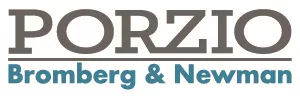Supplemental Security Income (SSI) is a program administered by the Social Security Administration (SSA) that provides a monthly cash benefit to individuals with limited income and assets. SSI recipients residing in New Jersey also receive Medicaid benefits through the New Jersey Division of Medical Assistance and Health Services.
The maximum amount of federal SSI benefits available to an applicant in 2024 is $943 per month; however, all applicants will not qualify for the maximum benefit. The amount of benefits available to an applicant depends upon many factors, such as earned income, unearned income, assets, and in-kind support and maintenance (ISM) provided to the applicant.
Currently, ISM is defined as “food, shelter, or both that someone else provides for you.” Beginning on October 1, 2024, the SSA no longer will include “food” in the ISM definition and calculation. ISM will be defined to include only shelter expenses (i.e., room, rent, mortgage payments, real property taxes, heating fuel, gas, electricity, water, sewerage, and garbage collection services).
The SSA cites equity as the rationale for this policy change in 89 FR 21199:
We historically included in-kind receipt of food in our ISM calculations because food assistance helps people meet their basic needs. However, the complexities of our current food ISM policies outweigh their utility ... we are revising our policy for several purposes, including to make our policies simpler (and thus easier to comprehend and use), and to promote equity both by treating food assistance equally regardless of the source and by not disadvantaging an already vulnerable population when they receive food assistance.
This policy change will eliminate the need to factor food expenses into annual Occupancy Agreements and simplify the annual renewal process for SSI recipients whose food expenses are covered by other household members or third parties.
The content of this article is intended to provide a general guide to the subject matter. Specialist advice should be sought about your specific circumstances.
[View Source]


